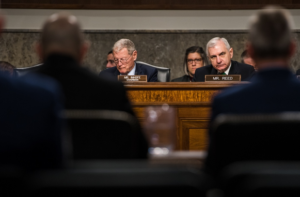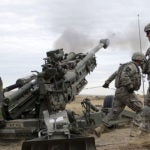
The Senate Armed Services Committee’s future hearings will consist of written responses submitted to the committee within one week of the hearing date as lawmakers work to adhere to government recommendations during the COVID-19 pandemic. “While the committee is committed to continuing Congressional oversight and data collection necessary to drafting the National Defense Authorization Act (NDAA), to protect the health of everyone involved, traditional hearings are not possible under current conditions,” SASC said in a March 25 statement. “In an…

 By
By 











